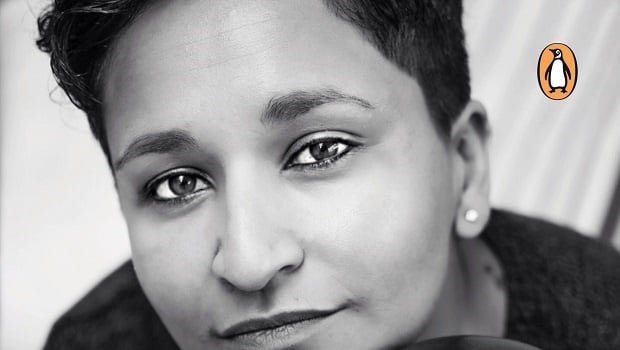
Sorry Not Sorry by Haji Mohamed Dawjee (first published in 2018 by Penguin Random House South Africa)
It’s hard to write a book with short essays that makes a reader feel, but reading this book was so emotionally real and as another brown, South African Muslim woman of Indian descent, I found several of them mightily relatable.
The book is well organised into 20 parts and each essay is short, readable and I’m sure at least a few are easily relatable to every South African reader. Some of the sub-topics have the potential to be a great resource for a regular discussion group, even.
While white privilege is a particularly complex and emotional subject to discuss, and while people choose to oftentimes shy away from it, Dawjee tackles it head-on with no sugar-coating.
Her words prove the necessity of having an open dialogue on confronting privilege. Consider it a wonderful primer on all things white privilege, if you will.
It’s an exceptional compilation that engages in white supremacy across linguistic, cultural, and economic factors. It’s almost a sobering look at the undercurrent of white privilege in South Africa and how it formed a brown woman’s self-worth growing up.
READ MORE: 6 books that brilliantly tackle issues of racism, white privilege and more
It is a book with short essays, but speaks volumes on several significant topics in an enticing and comedic tone. This book unpacks the realities of which so many brown people live through.
One of my top three favourite essays is A better life with Bollywood. Like actress Priyanka Chopra, Dawjee unpacks the narrow-minded, stereotypical viewpoint of the west seeing Bollywood as a genre, and that, unlike Hollywood, it cannot be reduced to a place because it’s an entire industry covering multiple genres.
The essay gives readers an eye-opening, profound rationalisation at the Indian film industry which is so antithetical to certain aspects that are conventional Hollywood practices. Dawjee diplomatically defends Indian cinema against western societies’ notion of slating it as being melodramatic, lengthy and having thin plots of mostly breaking into sing and dance by incorporating the plots of one of the industry’s blockbuster films, Veer Zaara. There are a couple of interesting tidbits but the greatest defense, personally, is:
“… For those who have never visited their country of origin or never again had a chance to return, Bollywood gives them the chance to wear their patriotic hearts on their sleeves. It’s the Bollywood movie that lets them escape the existential confusion of being an immigrant. It’s the Bollywood movie that, even for a couple of hours, from doing as the Romans do, and allows sixteen million people of the Indian diaspora to be consumed by the beating heart of their country as it pounds with yearning through their veins. It provides a connection to their traditions and roots, and reminds them that while they’ve left many things behind, they have brought a lot with them as well.”
This essay is quite a compelling, lightweight and easily digestible read, especially suited mostly for those totally unfamiliar with Indian cinema.
And how the women of Islam did slay is another essay that takes a very inspiring look at some of the most revered women of Islam, such as Khadija (RA), the Prophet Muhammad’s (SAW) wife. My especially favourite part is Dawjee’s frank expression of the elevation of women in Islam, which is contrary to what the media portrays and what western society believes.
One of the significant points she brings across is that the Qur’an is the only religious scripture of the monotheistic religions to address both men and women and talks about their equal standing in life, and that, Pre-Islam, women didn’t have the right to choose whether to marry or not. Islam changed that, and Dawjee uses the example of the best of these women of Islam to explain how the religion was not introduced to degrade women.
As she says in the interview below, although written from the perspective of a brown woman in South Africa, the themes are universal for all women of colour, but that it particularly looks at the stories of brown women around the world and how they navigate their way through their experiences.
READ MORE: Bollywood movies taught me so many life lessons - here are some you might not expect
Sorry, Not Sorry makes you laugh and occasionally cry, and feel an inner anger at times too. But most importantly, it makes you feel and think.
Dawjee wants the reader to ask themselves “some odd questions”, and to acknowledge that brown people are going to stop explaining themselves – simply because they don’t have to.
Purchase a copy of the book from Raru.co.za.
Sign up to W24’s newsletters so you don't miss out on any of our hot stories and giveaways.




 Publications
Publications
 Partners
Partners










